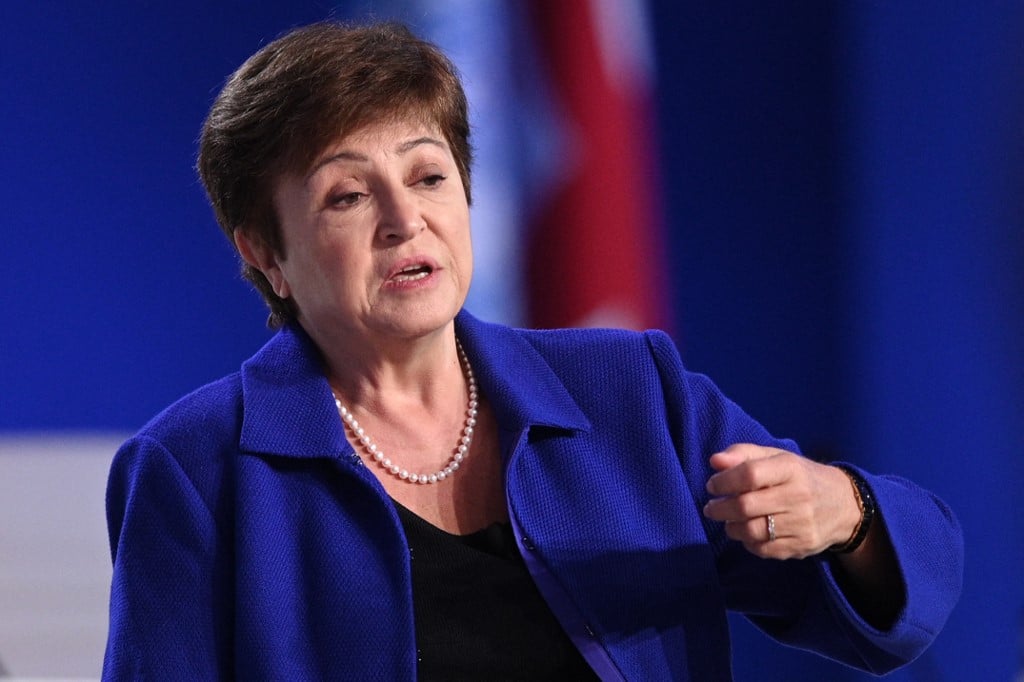Africa is particularly vulnerable to the impact of the Ukraine war but the International Monetary Fund (IMF) stands ready to help African countries address its repercussions, said IMF managing director Kristalina Georgieva on 10 March.
Her statement came at the end of a meeting in Washington with African ministers of finance, African central bank governors and representatives of the UN Economic Commission for Africa to discuss the impact of the crisis in Ukraine.
“Africa is particularly vulnerable to impacts from the Ukraine war through four main channels – increased food prices, higher fuel prices, lower tourism revenues, and potentially more difficulty accessing international capital markets,” she said.
“At this difficult moment, the Fund stands ready to help African countries address the repercussions of the war, and to help design and implement reforms through our policy advice, capacity development, and lending.”
The statement has been interpreted by analysts as indicating that the Fund will be more lenient in terms of the reforms it expects African countries to implement as part of the structural reform programmes tied to its loans.
Leading African economists have already expressed concern at the economic fallout of the war in Ukraine, including the impact of western sanctions on Russia.
“The sanctions against Russia have globalized the crisis. They could derail the incipient Covid-19 recovery and even set the stage for a longer-lasting financial crisis,” wrote Dr Hippolyte Fofack, chief economist at the African Export Import Bank (Afreximbank) in a tweet on 10 March.
The crisis will also have severe impacts on Africa’s food supplies. As David McNair, executive director of ONE, an NGO campaigning against global poverty, points out in the Irish Times, 23 African countries are dependent on Russia and Ukraine for more than half their imports of wheat.
“For European leaders, political attention and financial resources are understandably diverted elsewhere,” writes McNair. “But forgetting the aftershocks of this war and the pandemic on the African continent would be a mistake. To avert famines, instability and a resurgence of coronavirus and turn the tide on diminishing western influence in the region now is the time for western governments to step up.”
Could African leaders act as mediators in the Ukraine crisis?
Acting in his capacity as chair of the African Union, President Macky Sall of Senegal spoke to President Vladimir Putin by phone on 9 March.
In a tweet following the call, he said that he had called upon the Russian leader to bring about a “lasting ceasefire in Ukraine”.
On 24 February, the African Union called on Russia and all other actors “to respect international law, the territorial integrity and national sovereignty of Ukraine”.
The statement urged Russia and Ukraine “to open political negotiations without delay, under the auspices of the United Nations, in order to preserve the world from the consequences of planetary conflict, and in the interests of peace and stability in international relations in service of all the peoples of the world”.
President Cyril Ramaphosa of South Africa has also spoken to President Putin.
In a message posted on Linkedin on 10 March he said he had told the Russian president that the conflict should be resolved through mediation and negotiation between Russia and Ukraine, if need be with the help of outside agencies.
He added that “based on our relations with the Russian Federation and as a member of BRICS, South Africa has been approached to play a mediation role,” but did not specify where and when such mediation might take place.
Want to continue reading? Subscribe today.
You've read all your free articles for this month! Subscribe now to enjoy full access to our content.
Digital Monthly
£8.00 / month
Receive full unlimited access to our articles, opinions, podcasts and more.
Digital Yearly
£70.00 / year
Our best value offer - save £26 and gain access to all of our digital content for an entire year!
 Sign in with Google
Sign in with Google 



